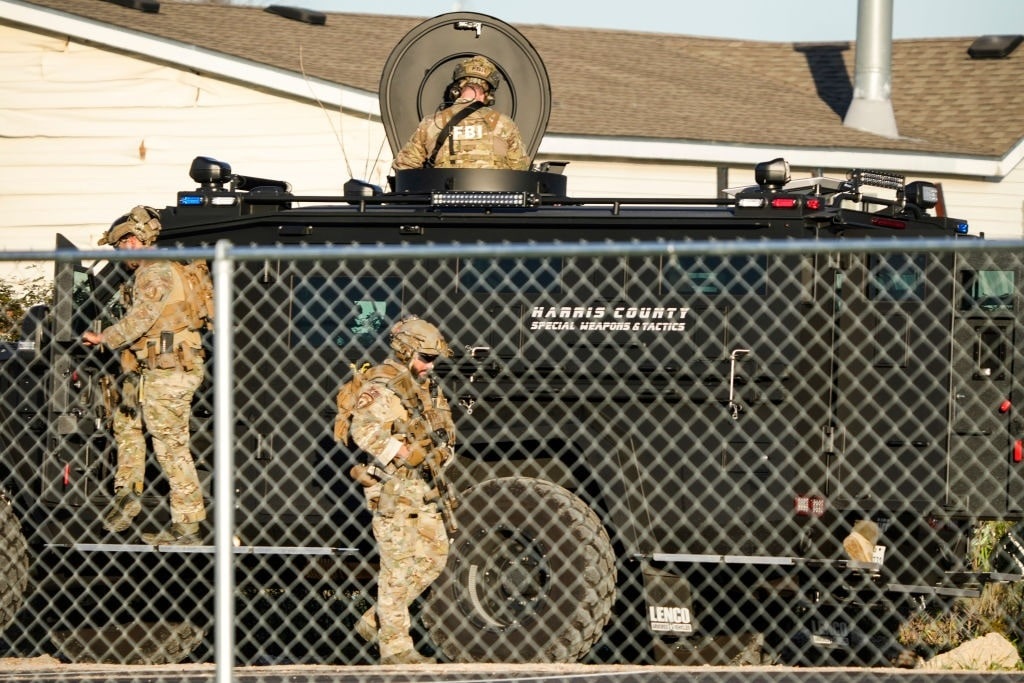
While major international conflicts take center stage, other dangers lurk behind the curtain.
No question about it, the seminal global conflict is Russia’s invasion of Ukraine. The crisis in Gaza and Chinese aggression in the South China Sea are a close second and third. However, a more immediate threat closer to home is the loosely organized but dangerous global terrorist organizations and non-state actors, such as cartels and transnational criminal groups. A recent threat assessment warned of the peril posed by global terrorism and international criminal enterprises without borders.
Global Terrorism and Transnational Criminals
The previous administration tended to coddle terrorists, but from his first day in office, President Donald Trump let it be known that his administration was going after terrorists and international criminals. His authorization of intensified air attacks on the Houthi rebels in Yemen during March was just a taste of what to expect. The US support of Israel during its 12-day war with Iran, the number one sponsor of terrorism, concluded with the destruction of Tehran’s nuclear development capability, showing this American resolve.
Nonetheless, terrorist organizations have become fragmented, with independent cells spread across the globe. The recent Annual Threat Assessment of the US Intelligence Community describes current examples of foreign-inspired attacks on US soil:
“ISIS remains the world’s largest Islamic terrorist organization, has sought to gain momentum from high-profile attacks, and continues to rely on its most capable branches and globally dispersed leadership to weather degradation. The New Year’s Day attacker in New Orleans was influenced by ISIS propaganda, and separately, an Afghan national was arrested in October for planning an election day attack in the name of ISIS, highlighting ISIS’s ability to reach into the Homeland to both inspire and enable attacks.”
Further, the threat analysis explains that Al-Qaeda remains a worldwide threat, maintaining “its intent to target the United States and US citizens across global affiliates.” Particularly troublesome have been the Al-Qaeda operatives in Iran who relentlessly stoke and exploit anti-Israel disturbances in major US cities and on university campuses, effectively fomenting student riots “over the war in Gaza to unite Muslims and encourage attacks against Israel and the United States.”
In April 2025, Just the News recounted an interview with former National Security Advisor Mike Waltz, revealing, “President Donald Trump has ordered air strikes and other operations during his first three months back in office that have killed 74 leaders of terrorist groups plotting to strike Western assets and the US homeland.” Since then, the United States has dispatched as many as 20 more terrorist leaders. In addition, “Since Jan. 20, the Trump administration has killed 272 ‘jihadis’ around the world,” Sebastian Gorka, senior director for counterterrorism on the president’s National Security Council, told The Daily Signal.
In South and Central America, transnational criminal groups have acted like terrorists, so Trump has designated the drug cartels as Foreign Terrorist Organizations (FTOs). They had previously operated somewhat freely, crisscrossing the US-Mexico border. Now that the border is essentially closed, international criminals have employed other methods to move their deadly wares, including human beings.
Criminal Gangs and Cartels Earn Terrorist Label
On Feb. 20, the State Department named eight cartels and criminal gangs as FTOs, including the infamous Tren de Aragua, MS-13, Cártel de Sinaloa, and CJNG, “a transnational organization with a presence in nearly every part of Mexico.” This hampers the criminals’ capability to do business and denies them “access to the US financial system and the resources they need to carry out attacks.”
Another consequence for the cartels is being targeted by the US military. “The Trump administration has directed the military to prepare for lethal strikes against cartel targets inside Mexico, three military sources tell us,” RealClear Defense relayed in an article by Ken Klippenstein. “The Top-Secret planning order, issued in late Spring, directs Northern Command (NORTHCOM) to manage the attack plans, which are to be ready by mid-September.” There will need to be serious coordination with the Mexican government, but the option to utilize US Special Operations forces and other capabilities must be kept on the table.
In a worrisome revelation, a Pew Research Center poll asked people across 25 nations about terrorism, and it found that “[t]he share of Americans who say terrorism is a major threat has declined 9 points since March 2020.” To effectively counter this danger, a sense of urgency must be reignited. Other international conflicts may grab the headlines, but an ever-present danger simmers not too far beneath the surface.
The views expressed are those of the author and not of any other affiliate.
Liberty Nation does not endorse candidates, campaigns, or legislation, and this presentation is no endorsement.

















